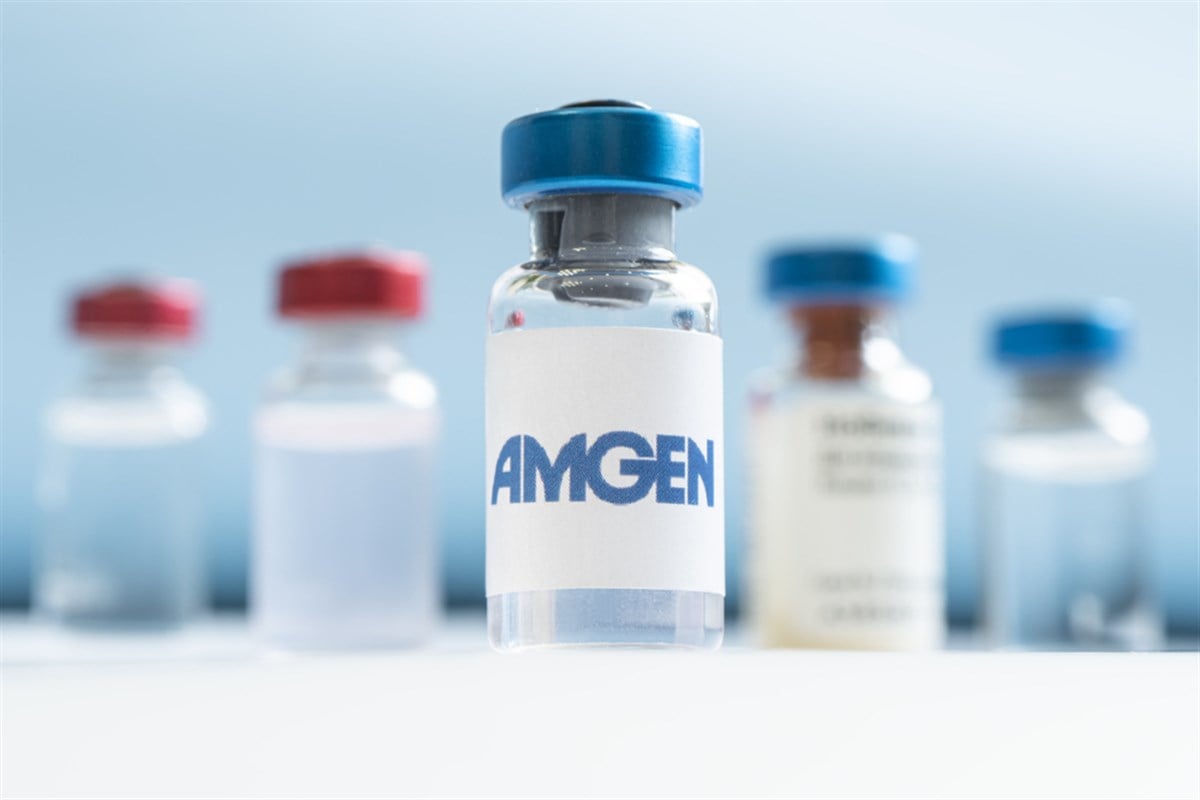Amgen today
(As of 12/6/2024 8:53 PM ET)
- 52 week range
- $257.80
▼
$346.85
- Dividend yield
- 3.30%
- P/E ratio
- 34.90
- Target price
- $323.05
Amgen NASDAQ:AMGN recently published clinical results from the development of the weight loss drug MariTide. The next day, shares fell as much as 12%. However, they recovered, leaving the company with a one-day loss of just 5%. This reduced Amgen’s value by $8 billion.
The fact that the FDA’s Phase 2 trial results had such a huge impact on Amgen’s value speaks volumes. This shows the importance markets place on weight-loss drugs for pharmaceutical companies competing in this arena. This highlights that this is an important topic to understand. Below I will discuss the results of MariTide and explain their significance in the broader context of weight loss drugs.
MariTide: Weight Loss Can’t Beat Zepbound
Amgen’s stock price fell mainly because MariTide failed to outperform Eli Lilly’s stock. New York Stock Exchange: LLI Zepbound in weight loss effectiveness. The results showed that obese people who took the drug lost an average of 20% of their weight over 52 weeks. Zepbound achieved approximately 21% weight loss in 48 weeks.
However, it beat Novo Nordisk’s results. New York Stock Exchange: HBO blockbuster Wegovy, in which patients lost only about 15% of their body weight over 52 weeks. Another positive point compared to Wegovy is that Maritide did not experience a plateau in weight loss. This indicates that further weight loss may occur after 52 weeks.
Key differences of MariTide, positive and negative
There are other key differences between MariTide and the other two treatments. First, patients take MariTide monthly or less frequently, whereas Zepbound and Wegovy are prescribed weekly. This is a key benefit of MariTide as it provides a more convenient option for patients. This is especially true when you consider that patients have to administer these drugs intravenously, a process many people complain about.
Additionally, in a special announcement about the results, Amgen executives said they saw the same effectiveness with bimonthly dosing as with once-monthly dosing. Based on this, MariTide could achieve similar efficacy to Zepbound, but when taken eight times less frequently. The next part of the study will focus on treatment once every three months. If effectiveness is maintained, this could result in dosing being 12 times less frequent than Zepbound. This is currently the biggest and most significant advantage of MariTide.
The key negative difference is that MariTide has led to an increase in treatment discontinuations due to side effects. Overall, 11% of patients discontinued participation in the study. For Zepbound, this figure reached a maximum of 7% depending on the dose. Wegovy also reported a figure of 7%. This is a clear disadvantage of MariTide and shows that the drug is much less well tolerated than what is currently available.
Another key point is MariTide’s strong cardiometabolic results. It improved blood pressure, triglyceride levels and other parameters. This provides another reason why the drug may attract potential patients. Finally, no association was found with bone mineral density. This issue was raised in the Cantor Fitzgerald report. They found data that the broader analytics community had missed in the Phase 1 results for MariTide. The news sent shares down 7% following the report’s release. Given the much larger sample size in the Phase 2 study, these new data should allay those concerns.
Amgen’s fall may be exaggerated, but it’s not surprising
Overall, MariTide showed superior results compared to currently available weight loss medications. While weight loss didn’t outperform Zepbound, the drug retained its key benefit: less frequent dosing. Additionally, the lack of a weight loss plateau leaves the possibility of surpassing Zepbound’s 22% weight loss at 72 weeks as more research is conducted.
Amgen Stock Forecast Today
$323.05
Growth potential 18.51%Hold
Based on ratings from 26 analysts
| High forecast | $405.00 |
|---|---|
| Average forecast | $323.05 |
| Low forecast | $195.00 |
Amgen stock forecast details
The high discontinuation rate is a concern, but cardiometabolic data mitigate this. Amgen shares continue to fall despite being lower after Cantor Fitzgerald’s report. It shows that the company doesn’t seem to be getting any credit for quelling concerns about bone mineral density that sent its stock plummeting.
Despite all this, investors are understandably concerned. MariTide hasn’t upped the ante on efficiency. At this point it really relies on less frequent dosing to differentiate. This is a highly competitive drug market with many new treatments coming soon. Amgen’s stock decline appears exaggerated. But the results aren’t strong enough for me to believe Amgen will have the next weight-loss blockbuster. Observing the success of quarterly dosing, decreased drug discontinuation, and increased weight loss over time may make a difference.
You might want to hear this before you consider Amgen.
MarketBeat tracks Wall Street’s top-rated and best-performing analysts daily and the stocks they recommend to their clients. MarketBeat identified five stocks that top analysts are quietly telling their clients to buy now before the broader market takes hold… and Amgen wasn’t on the list.
While Amgen currently has a Hold rating among analysts, the top-rated analysts think these five stocks are Strong Buys.
View five stocks here
Discover the next wave of investment opportunities with our report, 7 Stocks That Will Be Great in 2025. Explore the companies poised to emulate the growth, innovation and value creation of the tech giants dominating today’s markets.
Get this free report
